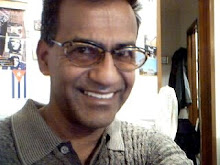
Medicine
There is no alternative
Virtually all alternative medicine is bunk; but the placebo effect is rather interesting
May 19th 2011 | from the print edition
IT IS, you might suppose, always good to have an alternative. In medicine, though, that is a controversial proposition. Alternative and complementary medicine are mostly quackery. Yet they are very popular. Clearly, they have something that mainstream medicine does not. The question is, what?
A few treatments (mostly herbs containing active drug molecules) do have proven benefits. A few others look worthy of further investigation. But from acupuncture, via homeopathy, to “quantum healing”, the vast majority, some 95%, offer nothing more than the placebo effect—the strange and inadequately explained tendency of certain medical conditions to respond to anything the patient thinks is directed at treating them, even when the treatment in question could not possibly have a direct effect on the disease.
It is thus a great pity that Edzard Ernst, the first professor of alternative medicine (that is, real scientific professor) and the man who demonstrated that 95% of the industry was hokum, is about to retire early (see article). It is an even greater pity that funding to his department at Britain’s Exeter University looks likely to be cut. For the message needs to be broadcast that alternative medicine is a colossal waste of money. Globally, the industry is estimated to be worth some $60 billion a year. That is a lot to pay for placebos.
The world’s advertising-standards offices should thus crack down on bogus claims—including the idea that there is such a thing as “alternative medicine” in the first place. If it works, it is a medicine and should be regulated like one. If it doesn’t work, it isn’t a medicine. Whenever scientifically challenged celebrities, such as the Prince of Wales, waffle on about it in ways that suggest it is outside the realm of scientific scrutiny, they too should be denounced by academics and proper doctors.
That should not, however, blind those proper doctors to the one thing, among all the claptrap, the so-called alternative does have to offer. Placebos can bring relief, especially from nerve-related problems like pain and depression. They may also reach further than that. There is growing evidence that the strength of a person’s immune system is affected by his mental state, too: a healthy mind really does count, especially in an unhealthy body. You do not necessarily have to dress up placebos in the trumpery of alternative medicine: studies show placebos also work when patients are just given fake pills that they think are proper medicines and even when they know they are placebos. But the alternative-medicine industry plainly excels as a placebo delivery service.
Visit more, listen more
For all the nonsense, the industry follows the famed advice of Sir William Osler, one of the fathers of (real) medicine: “care more particularly for the individual patient than for the especial features of the disease.” The industrialisation of patient care often depersonalises the process of treatment. The average length of an appointment with a British family doctor, for example, is eight minutes. However, complementary and alternative therapists—perhaps because they are usually private—take much longer. Patients reward them by believing (wrongly but usefully) that it is the specifics of the therapy that are bringing relief, rather than the attention itself. Proper doctors could learn from this. Veterans have always known the importance of a bedside manner. More home visits and fewer telephone consultations might work wonders.
from the print edition | Leaders
